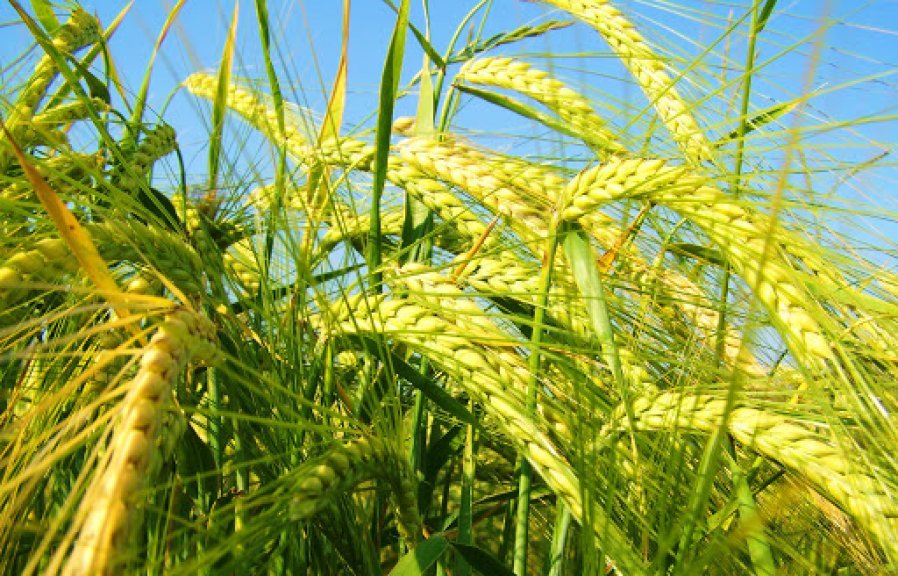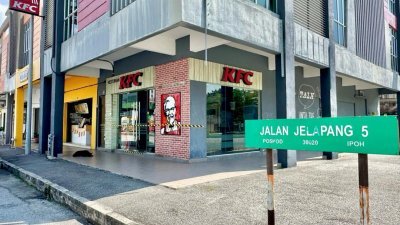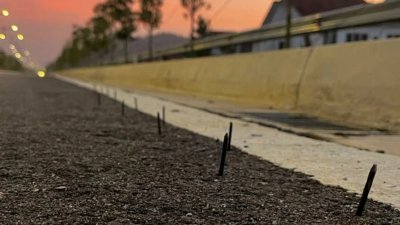新冠疫情的一个正面,就是一些社交媒体圈子里对这国家问题的探讨。这些思想和讯息的交流,不局限于疫情相关的课题,也涉及社会经济和政治问题,其中有许多是难获英文和马来主流媒体关注或认为是“不可碰触”的课题。
国内其中一名多产,有见地的部落客赛阿巴阿里(Syed Akhbar Ali),最近就回应了读者所关注的粮食生产及对此课题忽略不利于国家经济和社会发展(请参阅http://syedsoutsidethebox.blogspot.com/)。
从读者呼吁政府和政策制定者专注于粮食生产并避免施政的偏差中──赛阿巴也在其部落客发表了〈终止滥权〉一文,提供了为何我国粮食(稻米、水果、蔬菜)生产及相关产业落后的一些原因和背景。
赛阿巴将马来西亚的食品工业不发达归因于马哈迪当年的施政和《新经济政策》。
但是,他忽略了这落后并不是由于缺乏政府的拨款。实际上,自1970年以来的十项“5年大马计划”中,农业领域都获得可观的预算。在每一个为期5年的“大马计划”中,农业领域都能获分配约70亿至110亿令吉拨款,而自1970年以来农业领域的总拨款至少达到700亿令吉。
这其中又有多少,因长期以来面对著的弊端,舞弊和腐败问题,而被“干捞”掉。即使以保守的10%来推算,也意味著有70亿令吉,落在非农民的手中!
粮食生产与种族因素
如今,赛阿巴就质疑,为确保疫情下粮食供应的安全,是否有必要在振兴经济配套中拨出8亿令吉的款项来推动种植短期经济作物。对于这问题,可能永远都不会有答案。
赛阿巴的评论也触及其他问题。其中包括一些涉及种族政治体系核心的因素,这些因素也主导著我们的经济。当然,农业和粮食生产中的一些问题,是无关种族的。这些是涉及生产和生产率的技术层面;对基础设施和研发的投资:许多本地生产者的技能和知识水平低落;农业人口老龄化;面对著进口食品竞争和非农产品领域的高薪就业机会等等。
但是,在生活和社会其他层面的种族因素和动态,是否也渗入粮食生产和自供自足的问题内?
如果是的话,又是以什么方式?这问题很重要,不仅是因为强调马来人优先的新经济政策,至今已落实了50年。同样重要的是,在当前严重的经济危机中,当全球供应链遭到破坏时,国家粮食生产和自给自足,日显重要。
在大马科学媒体中心最近举行的一场网络研讨会上,来自农业和粮食安全研究所的邓炳祥(Paul Teng)博士呼吁东盟国家重新思考国家的粮食系统,因为疫情下国与国的边境关闭了,一些国家也禁止了粮食出口。
涓滴和外溢效应
他在网络研讨会上提出的一个重要观点是,当赋予农民更多生产权时,也等于给予消费者以及整个供应链中其他中介更多的赋权。
而赛阿巴也作出类似的结论,据他所言:如果我们增加对金马仑高原的投资,试想这对全国人民会带来多少新的就业机会──不只是华裔或印裔农人受惠而已。运输、进出口的税务、船运、空运,以及包装等更多的行业也会带动起来。这涓滴和外溢的效应,将令全国经济受惠。
那提高粮食生产的焦点是什么?首先,重要的是不要将自供自足作为“硬目标”。通过行之有效的市场行销和技术驱动的激励措施,以及撤销各种障碍,尽可能鼓励本地生产,这包括猪肉。但是要有认知,鉴于我国的经济结构和其他领域的比较优势,自给自足不是一个合理或可行的经济目标。
让地方上的农人自行确定是将钱投资在种植猫山王榴梿或畜牧业上,让市场之手在本地生产与进口之间寻找平衡点,无需政府采取管制的措施大力干预,这往往会使消费者承受更高的成本。当然,在一些农业领域,如养猪业,也必须考虑环境、生物安全等问题。但是,应以科学方式解决这些问题,尤其畜牧业对于降低沙巴州和砂拉越州乡区贫困问题,具有很大的作用。
其次,提高粮食产量的解决方案,不是通过投入更多的钱就可以达到的,例如振兴配套的8亿令吉款项,这很大可能会落入地方精英的手上,特别是政治中介手中。
自殖民时期以来,缺乏农业生产地,一直都是马来西亚半岛从事农业的华裔和印裔社群,所面对的主要限制。即使有了土地,许多农民也面对著土地租赁期短或只有临时地契的局面,这使到农民缺乏保障,而不愿在基础设施和先进技术上投资。尽管一些州政府已从国阵转变为希盟,但对于许多非马来农民来说,即使几代人已在只有临时地契土地上耕作,但依然无法改变处境。
除非土地限制问题获得解决,否则提高粮食生产的目标,将是我们永远无法实现的梦想。
《粮食安全思索》(Front Liners Bringing Food to Our Table )原文:
A positive aspect of the Corvid 19 pandemic is the reflection in some social media circles on the challenges that the nation is facing. Not just confined to issues directly related to the pandemic, the exchange of ideas and information covers a spectrum of socio-economic and political issues, many of them less explored or regarded as ‘untouchable’ by the English and Malay mainstream media.
One of the nation’s most prolific and thoughtful bloggers, Syed Akhbar Ali recently responded to a reader’s concern on the subject of local food production and how it has been neglected to the detriment of the national economy and society (see http://syedsoutsidethebox.blogspot.com/)
Taking the cue from the reader’s appeal to the government and policy makers to focus on food production and to avoid deviations - “Tamatkan penyelewengan” - Outsyed the Box’s (OTB) article provides some background on how and why our local food (padi, fruits, vegetables) producers and their associated industries have been left behind.
The underdevelopment of our local food industry has been attributed by Syed Akhbar to the nation’s political leadership under Dr. Mahathir and the New Economic Policy.
However he has omitted to mention that this underdevelopment was not due to lack of government funding. In the ten 5 year Malaysia Plans since 1970, agriculture has been allocated a very generous share of the country’s budget. During each 5 year plan about RM7,000 million to RM11,000 million was allocated alone to agriculture bringing the total allocation for agriculture since 1970 to at least RM70,000 million.
How much of this has gone to well documented and longstanding leakages, malpractices and corruption needs to be asked. Even a modest 10% of this total means that RM7,000 million has disappeared into the pockets of non-farmers!
For today, Syed Akhbar has asked why it is necessary to allocate RM800 million of scarce public funds in the current stimulus programme for the growing of short term cash crops aimed at ensuring food security during this crisis period. The answer to his question is unlikely ever to see the light of day.
Racial Factor in Local Food Production
Syed Akhbar’s commentary also touches on a myriad of other issues. They include some which lie at the heart of the racial political system which has become the dominant driver of the economy. To be sure there are issues in agricultural and food production that are not racially skewed or do not have a race based explanation. These relate to the technical aspects of production and productivity; the need to invest in infrastructure and R & D: the lower level skills and knowledge of many local producers; an aging farming population; the competition stemming from imported food products and higher paying employment in the non-agricultural sector; and so on.
But does the racial equation and dynamics found in other aspects of life and society also enter into the issue of self-sufficiency and food production?
And if it does, in what way?
This topic is important not simply because it is 50 years now since the NEP with its Malay dominance emphasis was first introduced. It is also important because at this time of acute economic crisis when global supply chains have been disrupted, national and local self sufficiency concerns have assumed greater importance.
In a recent webinar organized by the Science Media Center of Malaysia, panelist Dr. Paul Teng of the Institute of Agricultural and Food Security Studies called on ASEAN countries to rethink their food systems in view of border closures and export bans by some countries on food supplies.
An important point he made to the webinar was the observation that empowering farmers to produce more also meant empowering the consumer as well as other intermediaries all the way down the supply chain.
Syed Akhbar has made a similar observation. According to him
Jika kita menambahkan sedikit pelaburan di Cameron Highlands bayangkan peluang pekerjaan baru yang akan seterusnya wujud bagi semua penduduk negara - bukan saja penanam sayur Cina dan India. Kerja lojistik, perbankan membiayai ekspot impot, perkapalan, penerbangan, packaging dan banyak lagi. Trickle down effect dan spillover effect akan menguntungkan keseluruhan ekonomi negara kita.
If we increase investment in Cameron Highlands [food production] this will generate new employment which will benefit all - not only Chinese and Indian vegetable growers. Logistics activity, export and import taxes, shipping, air freight, packaging and much more. The trickle down and spillover effect will benefit our entire national economy.
Food Self Sufficiency: How Not to Bay At The Moon
So what’s standing in the way of enhanced food production? Firstly it is important not to establish self sufficiency as a hard target. Encourage local production, including pork, as much as possible through proven market and technology driven incentives and remove barriers. But recognize that self sufficiency given the structure of our economy and comparative advantage in other sectors is not a rational or feasible economic goal.
Let the local producers determine whether it is better to put their money on planting Musang King or in animal husbandry and let the market find the balance between local production and imports without the heavy hand of the government intervening to impose controls which will mainly result in higher costs to consumers. Of course, environmental, biosecurity and similar concerns need to be taken into account in sectors such as pig farming. But these should be scientifically addressed since animal husbandry has possibly the greatest potential to bring down rural poverty levels in Sabah and Sarawak.
Secondly, the solution in enhancing production is not to be found by throwing in more money such as the RM800 million extra which will disappear into the wallets of local elite groups especially political intermediaries.
The key constraint that has cropped up repeatedly since the colonial period is the lack of access to land for the Chinese and Indian agricultural community in Peninsula Malaysia. And when land is available, many farmers are tied to very short leaseholds or temporary occupation licenses that provide little security of tenure and deter them from investing in higher level technology and infrastructure. And this continues for many non-Malay farmers who despite working the land under TOL for several generations still cannot get the change in status of the land despite the change in state government from Barisan into Pakatan hands.
Until this land constraint is addressed we will forever be chasing an impossible dream in the quest for enhanced food production.








